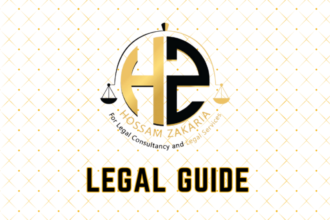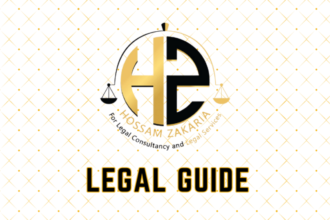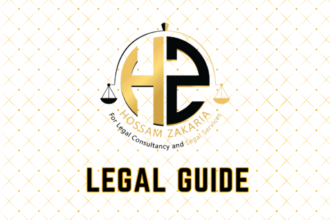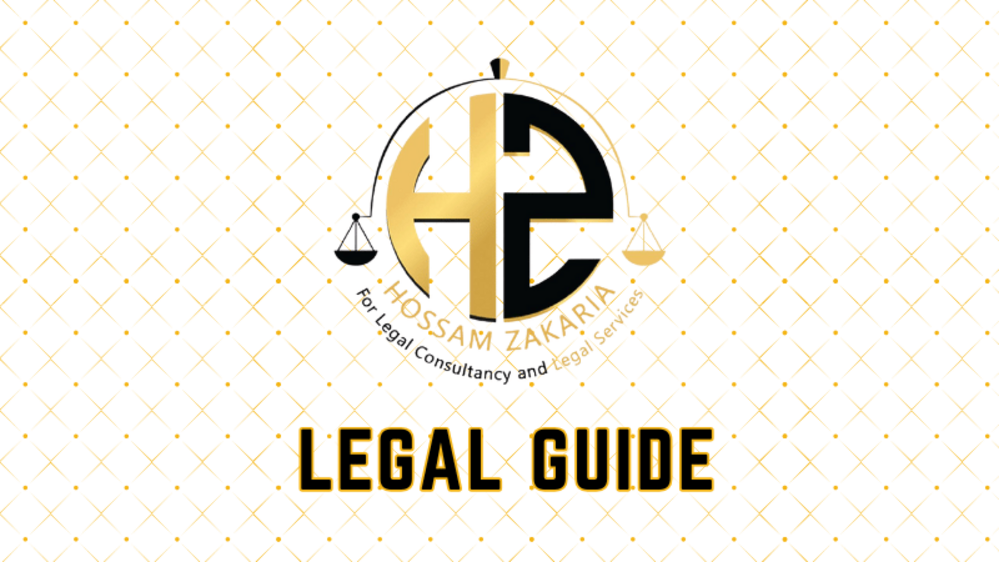Introduction: The Importance of Understanding Saudi Financial Legal Structures for UAE Businesses
In an era of unprecedented economic collaboration within the Gulf Cooperation Council (GCC) and in light of recent legislative updates, the legal structuring of financial institutions in Saudi Arabia has become a pivotal area of concern for UAE businesses contemplating cross-border expansion. The Kingdom’s ambitious Vision 2030, coupled with sweeping regulatory reforms, presents fresh opportunities—but also novel compliance challenges—for UAE-based organizations aiming to invest or operate in the Saudi financial sector.
The landscape for financial institutions in Saudi Arabia has undergone significant transformation, particularly following the introduction of the new Companies Law by Royal Decree No. (M/132) of 01/12/1443H and the consistent updates to the regulations issued by the Saudi Central Bank (SAMA). Concurrently, the UAE has accelerated its own legal modernization drive, exemplified by the updated Commercial Companies Law, Federal Decree-Law No. (32) of 2021, and ongoing 2025 legislative reforms aimed at ensuring corporate transparency and investor protection. For UAE executives, in-house counsel, and compliance leaders, understanding the interplay between these legal frameworks is critical for risk management, operational continuity, and strategic growth in Saudi Arabia.
This article therefore provides a comprehensive, consultancy-grade legal analysis on navigating the regulatory structure of Saudi financial institutions, emphasizing the practical implications for UAE businesses. By examining the relevant statutes, regulatory bodies, compliance risks, and strategic considerations, we aim to empower UAE organizations with actionable insights for cross-border compliance and success.
Table of Contents
- Understanding the Saudi Financial Regulatory Landscape
- Legal Frameworks Governing Financial Institutions in Saudi Arabia
- Entry Pathways for UAE Businesses into the Saudi Financial Sector
- Key Compliance Requirements: Saudi Arabia vs. UAE
- Risks, Penalties, and Enforcement Actions
- Best Practice Strategies for Regulatory Compliance
- Case Studies and Hypothetical Scenarios
- Conclusion: Navigating the Road Ahead
Understanding the Saudi Financial Regulatory Landscape
Analysis of Regulatory Bodies
Saudi Arabia’s legal architecture for financial institutions is shaped by several key regulatory and supervisory bodies, with each playing a distinct role:
- Saudi Central Bank (SAMA): The primary authority for regulating banks, finance companies, insurance firms, and payment service providers. SAMA enforces the Banking Control Law (Royal Decree No. M/5 of 1386H), Finance Companies Control Law (Royal Decree No. M/51 of 1433H), and Insurance Control Law (Royal Decree No. M/32 of 1424H).
- Capital Market Authority (CMA): Supervises securities, capital market intermediaries, and investment funds as established under the Capital Market Law (Royal Decree No. M/30 of 1424H).
- Ministry of Commerce: Monitors incorporation and commercial compliance for all entity types under the Companies Law.
- Other Sectoral Authorities: Entities such as the Saudi Arabian Monetary Authority for Anti-Money Laundering and the Zakat, Tax and Customs Authority may play a role in specific compliance requirements.
Recent Legal Developments
The Saudi legislative landscape has seen significant innovation, including the Companies Law of 2022, which drastically modernizes corporate formations, and the Capital Market Authority’s 2023 amendments to the Investment Funds Regulation, which enhance investor protection and transparency.
For UAE-based entrants, staying abreast of these evolving frameworks is essential, particularly given the simultaneous push in the UAE for regulatory convergence with international standards, as reflected in upcoming UAE law 2025 updates and the strengthening of anti-money laundering (AML) and know-your-customer (KYC) requirements.
Legal Frameworks Governing Financial Institutions in Saudi Arabia
Foundation Statutes and their Provisions
- Banking Control Law (BCL): Governs licensing and activities of banks and their foreign branches in Saudi Arabia.
- Finance Companies Control Law (FCCL): Regulates financing companies across retail, SME, and mortgage finance.
- Companies Law of 2022: Applies to all legal entities, streamlining procedures around incorporation, governance, and liquidation.
- Capital Market Law (CML): Regulates issuance and trading of securities, asset management, and market conduct.
- Anti-Money Laundering Law: Aligns with FATF recommendations, enforced by SAMA and the Saudi Financial Investigation Unit, impacting all financial institutions.
Relevant UAE Regulations: A Comparative Lens
The UAE operates under a parallel set of federal statutes, such as the Central Bank Law (Federal Law No. 14 of 2018), the Commercial Companies Law (Federal Decree-Law No. (32) of 2021), and robust AML regulations overseen by the Financial Intelligence Unit. Coordination between these legal environments is crucial for UAE businesses establishing financial operations in the Kingdom.
Key Licenses and Authorizations
| Type of Financial Entity | Regulatory Authority | Main Legal Instrument | License Requirements |
|---|---|---|---|
| Commercial Bank | SAMA | Banking Control Law | Saudi-shareholder requirement, capital adequacy, fit and proper test |
| Finance Company | SAMA | Finance Companies Control Law | Minimum paid-up capital, board composition, AML program |
| Insurance Provider | SAMA | Insurance Control Law | Specialized license, solvency requirements, product approval |
| Securities Firm | CMA | Capital Market Law | Market conduct rules, professional indemnity insurance |
Entry Pathways for UAE Businesses into the Saudi Financial Sector
Cross-Border Establishment Options
Saudi Arabia permits foreign investment in its financial sector, subject to regulatory approvals, specific sectoral caps, and strict localization requirements. The primary entry routes for UAE entities include:
- Branching: Opening a branch of a UAE company, such as a bank or fintech, subject to SAMA’s approval and compliance with minimum capital requirements.
- Joint Ventures (JVs): Establishing a financial JV with a local Saudi partner, often necessary for certain sectors such as insurance or payment services.
- Wholly-Owned Subsidiaries: Permitted in designated activities, provided that all relevant SAMA or CMA licenses are obtained.
- Representative Offices: Limited to market research and liaison activities, not operational financial services.
Practical Considerations and Regulatory Hurdles
Real-world legal consultancy experience shows that UAE entities face regulatory vetting focusing on: shareholder structure, senior management suitability, governance, and evidence of robust AML controls. The Saudi Government’s Saudization and localization policies further mandate the employment of Saudi nationals in certain functions—a requirement not paralleled in most UAE regimes.
Case Example: A leading UAE asset manager seeking to establish a mutual funds platform in Saudi Arabia must navigate approval from the CMA, demonstrate technological and compliance capabilities, and structurally align its governance with Saudi legal expectations—including the appointment of Saudi national board members where applicable.
Key Compliance Requirements: Saudi Arabia vs. UAE
Comparative Analysis of Regulatory Regimes
While both countries emphasize strong corporate governance, financial due diligence, and anti-financial crime protocols, there are important nuances in statutory and regulatory obligations. The table below compares key compliance factors:
| Compliance Area | Saudi Arabia (Legal Source) | UAE (Legal Source) |
|---|---|---|
| Ownership/Shareholding | At least 30% Saudi shareholding for banks (BCL Art. 6) | Up to 100% foreign ownership in certain free zones (CCL 2021, Art. 10) |
| Minimum Capital | SAR 15 billion for commercial banks (SAMA Circular 2023) | AED 40 million for banks (Central Bank Regulation 2022) |
| Governance | Board diversity, mandatory Saudi nationals (Companies Law 2022) | Flexible, with Emiratisation incentives (Cabinet Resolution No. 10 of 2021) |
| AML/KYC Requirements | Stringent, in line with FATF (AML Law 2017 SAMA Rules) | Stringent, FSRB and FATF alignment (Federal Decree-Law No. 20 of 2018) |
| Licensing Process | Highly formalised, lengthy lead time (BCL, FCCL) | Central Bank/FSC streamlined, especially in ADGM/DIFC |
| Penalties for Non-Compliance | Criminal and civil liabilities, license suspension, financial penalties (CMA/SAMA Enforcement Manual) | Fines, license revocation, and directors’ liabilities (FSRA Guidance 2023) |
Suggested Visual: Compliance Process Flow for Cross-Border Licensing
Insert a flowchart illustrating the steps UAE businesses must follow to obtain SAMA/CMA licensing, from initial application and due diligence to post-licensing compliance audits.
Risks, Penalties, and Enforcement Actions
Main Legal and Regulatory Risks
- Non-Compliance with Licensing Conditions: Operating without an approved license exposes both the local branch and parent company to criminal prosecution under Saudi law.
- AML/KYC Failures: Both SAMA and the CMA rigorously enforce compliance with anti-money laundering protocols. Recent years have seen record fines related to suspicious transaction monitoring and reporting failures.
- Governance and Saudization Breaches: Insufficient board oversight, lack of Saudi national representation, or failures in implementing Saudization quotas can result in severe penalties, including suspension of operations.
- Data Localization and Cybersecurity: Stringent data storage and privacy laws require financial institutions to maintain certain customer data within Saudi territory.
- Reporting Deficiencies: Late filing of reports or financial statements, or inaccuracies in disclosures, can attract both financial and reputational penalties.
Penalty Comparison Table
| Category | Saudi Arabia (Range) | UAE (Range) |
|---|---|---|
| Unlicensed Activity | Up to SAR 10 million, imprisonment (BCL Art. 19) | Up to AED 10 million, business shutdown (Central Bank Law Art. 135) |
| AML/KYC Violations | Up to SAR 5 million, ban on operations (AML Law Art. 28) | Up to AED 5 million, reporting to FIU (AML Law Art. 14) |
| Saudization/Emiratisation Breaches | SAR 20,000 per violation, suspension of license (Ministry of Human Resources Circular Nitaqat) | AED 50,000 per violation, ban on contracts (Cabinet Resolution No. 19 of 2022) |
| Data Security Breaches | SAR 3 million (Personal Data Protection Law 2021) | AED 500,000 (UAE Data Protection Law 2021) |
Tip: Consider adding a compliance checklist or risk matrix visual that shows typical areas of regulatory focus during SAMA/CMA inspections.
Best Practice Strategies for Regulatory Compliance
Actionable Recommendations for UAE Entities
- Conduct Robust Legal Due Diligence: Engage Saudi-qualified legal advisors to review entity structuring, licensing, and operational requirements pre-entry.
- Implement Dual-Region Compliance Policies: Synchronize compliance manuals to address both Saudi and UAE regulatory standards, with special attention to AML, cybersecurity, and data protection.
- Prioritize Board Composition and Governance: Strengthen corporate governance frameworks, ensuring suitable Saudi representation, and regular board training on regional regulatory requirements.
- Localize Critical Functions: Invest in recruiting and training Saudi nationals, and document efforts to comply with Saudization quotas.
- Utilize Technology for Compliance Automation: Adopt advanced RegTech and FinTech solutions for transaction monitoring, regulatory reporting, and KYC systems.
- Monitor Legal Updates Continuously: Appoint an internal compliance officer or outsource to a trusted legal consultancy for regular monitoring of GCC-wide legislative changes—including the anticipated UAE law 2025 updates.
Compliance Checklist Table
| Required Action | Status (Y/N/Planned) | Responsible Party |
|---|---|---|
| Obtain all relevant licenses | Legal Director | |
| Board structure review and update | Board Secretary | |
| AML/KYC program implementation | Compliance Lead | |
| Data localization audit | IT Manager | |
| Employment of Saudi nationals | HR Director | |
| Continuous regulatory monitoring | External Counsel |
Case Studies and Hypothetical Scenarios
Case Study 1: UAE Bank Establishing Saudi Branch
Scenario: A leading Dubai-based commercial bank seeks to open a branch in Riyadh. The bank faces challenges in meeting SAMA’s high minimum capital requirements, documentation of beneficial ownership, and Saudization in compliance with Nitaqat quotas.
Consultancy Response: Legal due diligence identifies the need for advance compliance planning, possibly including a phased hiring of Saudi nationals and the securing of local legal representation. Continuous risk management includes regular internal audits aligned with both UAE Central Bank directives and SAMA circulars.
Case Study 2: FinTech Joint Venture
Scenario: A UAE FinTech seeks to partner with a Saudi conglomerate to offer payment services. The venture must comply with Kingdom-specific cybersecurity and data localization rules, as well as the nuanced requirements in the new Companies Law.
Consultancy Response: Advise early engagement with SAMA’s FinTech regulatory sandbox unit, structured agreements that detail compliance responsibilities, and a robust technology risk assessment conforming to both jurisdictions’ laws.
Conclusion: Navigating the Road Ahead
The evolving relationship between Saudi Arabia and the UAE continues to redefine the regulatory and commercial environment for financial institutions. As Saudi Arabia intensifies its modernization drive and the UAE further integrates global compliance standards—demonstrated by the anticipated UAE law 2025 updates—the importance of deeply informed legal strategy and agile compliance management is paramount.
For UAE businesses, success in Saudi Arabia’s financial sector will be dictated by their ability to decipher complex legal frameworks, pre-empt regulatory risks, and foster durable partnerships with local stakeholders. The legal and operational synergies between the two jurisdictions present substantial opportunities, provided that organizations prioritize ongoing legal advice, board readiness, proactive risk assessment, and best practice compliance protocols.
Looking ahead, the integration of Saudi and UAE regulatory reforms will further heighten expectations for transparency, governance, and responsible business conduct across the region. UAE companies are advised to adopt a forward-looking compliance model—investing in legal due diligence, harmonizing policies across borders, and leveraging technological innovation—to turn compliance challenges into strategic advantages in 2025 and beyond.



